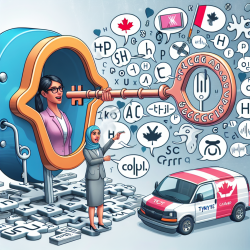The COVID-19 pandemic has necessitated rapid adaptations in healthcare practices, particularly in the management of dysphagia. The ESSD Commentary on Dysphagia Management During COVID Pandemia offers critical insights for practitioners. Here, we delve into the key recommendations and their practical applications to enhance your skills and improve patient outcomes.
Balancing Risk and Care in Dysphagia Management
During the pandemic, the management of oropharyngeal dysphagia requires balancing the risk of complications, such as aspiration pneumonia and malnutrition, against the risk of COVID-19 infection. The ESSD Commentary emphasizes the importance of triaging patients to determine the necessity of dysphagia assessment, particularly for those at significant risk of complications or with suspected life-threatening conditions.
Implementing Telepractice and Compensatory Treatments
To minimize the risk of infection, telepractice is highly encouraged. Practitioners should leverage remote systems to gather information about patients' COVID-19 status and dysphagia risks. Compensatory treatments are recommended for both COVID-positive and COVID-negative patients. These include:
- Encouraging patient self-oral care
- Avoiding coughing maneuvers and aerosol-generating procedures
- Using non-invasive treatment techniques where possible
Personal Protective Equipment (PPE) Guidelines
The ESSD Commentary provides detailed PPE guidelines to protect healthcare professionals:
- For COVID-negative patients: protective eyewear, surgical mask, and gloves
- For COVID-positive patients: FFP2/3 mask, gloves, protective eyewear, waterproof disposable gowns, and disposable hairnet
Training in the proper use of PPE is crucial to ensure safety during assessments and treatments.
When to Perform Instrumental Assessments
Instrumental assessments, such as Videofluoroscopic Swallow Study and Fiberoptic Endoscopic Evaluation of Swallowing, should be performed only if necessary and if appropriate cleaning and processing of instruments can be guaranteed. These assessments are reserved for cases where clinical evaluation does not provide sufficient diagnostic information.
Conclusion
The ESSD Commentary provides a framework to support clinicians in adapting their practices during the pandemic. By following these guidelines, practitioners can ensure safe and effective dysphagia management while mitigating the risk of COVID-19 transmission. For further detailed recommendations and practical information, we encourage you to read the original research paper.
ESSD Commentary on Dysphagia Management During COVID Pandemia 









